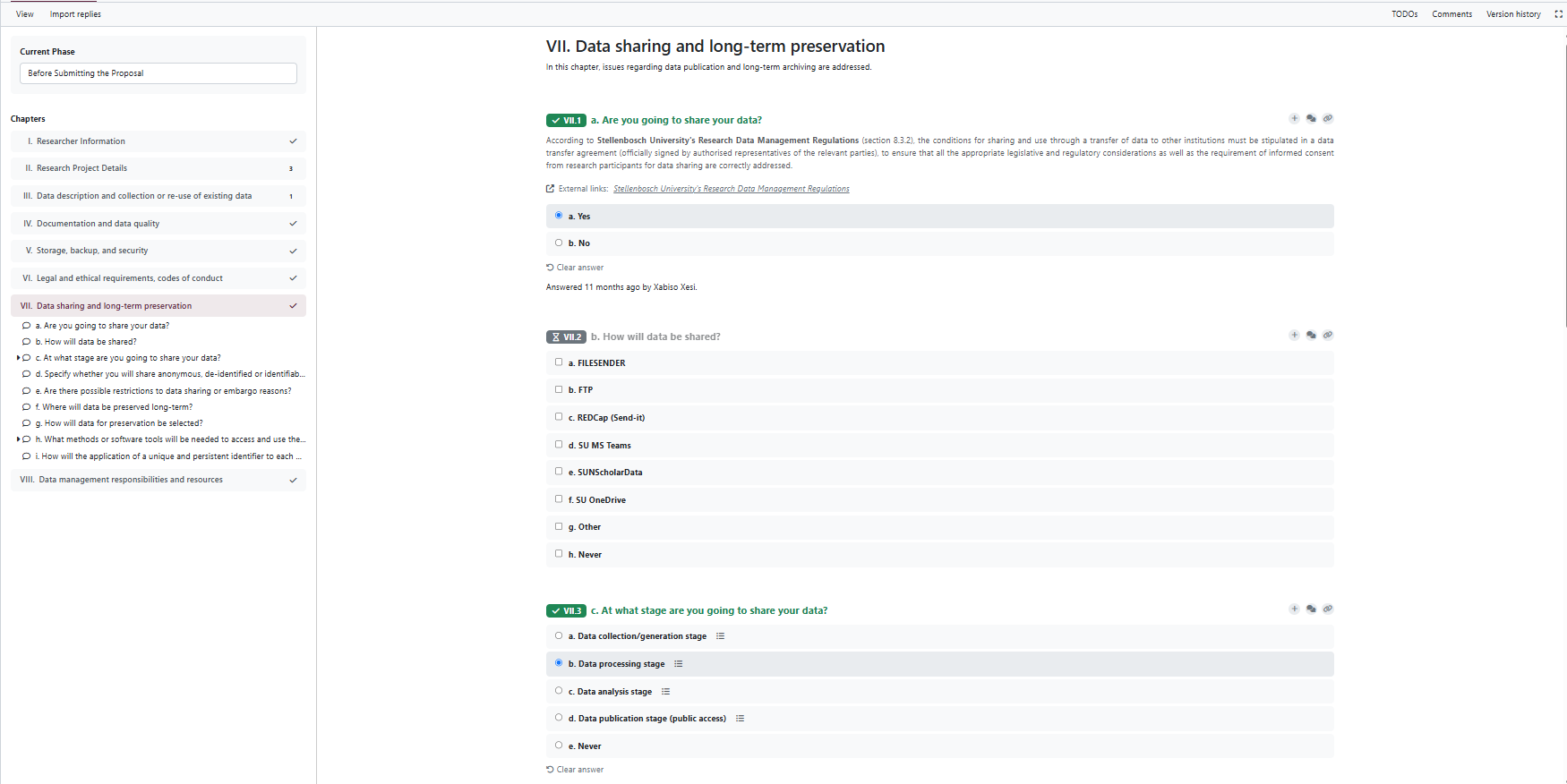
Stellenbosch University’s Library and Information Service is a natural partner to the scientific research process. As such, we launched our own data management plan (DMP) tool, SunDMP, in 2024. This tool allows researchers to generate DMPs seamlessly online. Its comprehensiveness means it can be adapted for any purpose, internally to apply for ethical clearance, or externally to apply for funding. Researchers who require assistance with creating DMPs using SunDMP can contact Sizwe Ngcobo. The information below is required when you create a DMP using the SU’s template (on SunDMP).
Researcher information
This section of the tool is meant for researchers to populate their demographic data such as their name, surname and other personal details, ORCID Identifier, university affiliation and the research data management roles they would perform when conducting a project.
Project information
As per international standard requirements, this section requires SU researchers to add basic information such as the project name, abstract, funder information (including the status), anticipated start and finish dates, and the ethics body in which they belong such as Health Research Ethics Committee; Research Ethics Committee: Animal Care and Use (REC: ACU); Research Ethics Committee: Biological and Environmental Safety (REC: BES); or Research Ethics Committee: Social, Behavioural and Education Research (REC: SBE)
Data description and collection or re-use of existing data
It is a commonly shared perspective that research projects extensively engage with data through activities such as reuse, collection, transformation, and analysis. The SunDMP template enables SU researchers to include comprehensive details of data collection in their DMPs. This ensures research data reusability and facilitates effective management throughout the research data lifecycle.
Documentation and data quality
SU researchers are required to document their data to ensure that other researchers can understand and interpret the data generated from the project. This section aims to ensure that SU researchers describe all the sources of data, this includes data generated through various instruments or from questionnaires; data to be newly collected as part of the current project, but it can also be pre-existing data that may need proper contracts with the maintainer, some pre-processing, and quality checks. It can also be reference data that is part of curated resources and (public) databases.
Legal and ethical requirements, codes of conduct
Research data collected or reused within a research project is subject to SU’s research data management regulations to govern permissible uses. Therefore, all SU researchers need to address various ethical, legal, and security issues within their DMPs. This ensures that all research data available for reuse undergo proper anonymisation, de-identification, and licensing procedures, thereby promoting compliance and safeguarding research data integrity.
Data sharing and long-term preservation
In addition to ensuring comprehensive metadata and accessibility, SU researchers need to ensure that data that is intended for reuse must be securely stored (see SUNScholarData libguide for reference) and preserved. This entails that the DMP needs to address strategies for data storage and preservation to support future reuse, whether for rerunning experiments, usage as reference data, or facilitating use by other SU researchers or the general public for different purposes.
Author: Sizwe Ngcobo



